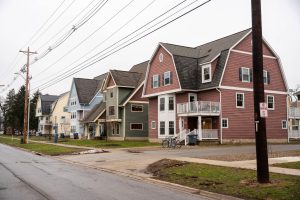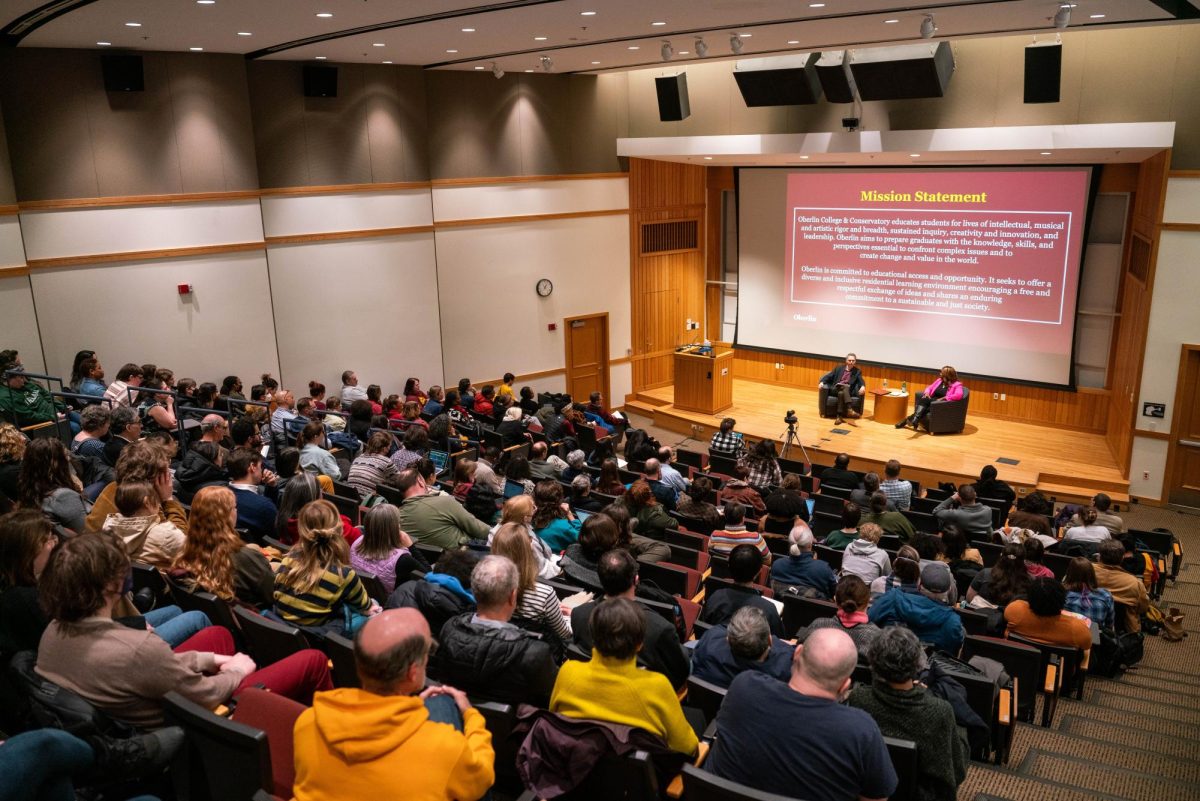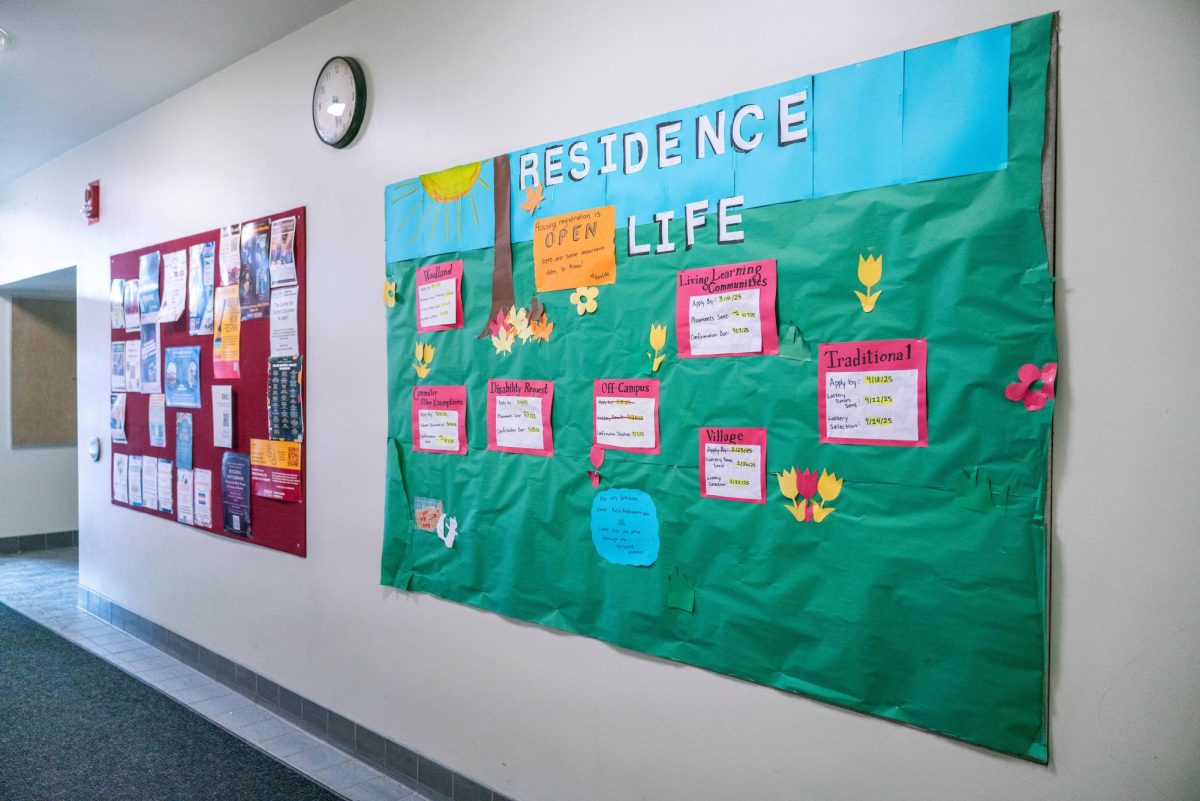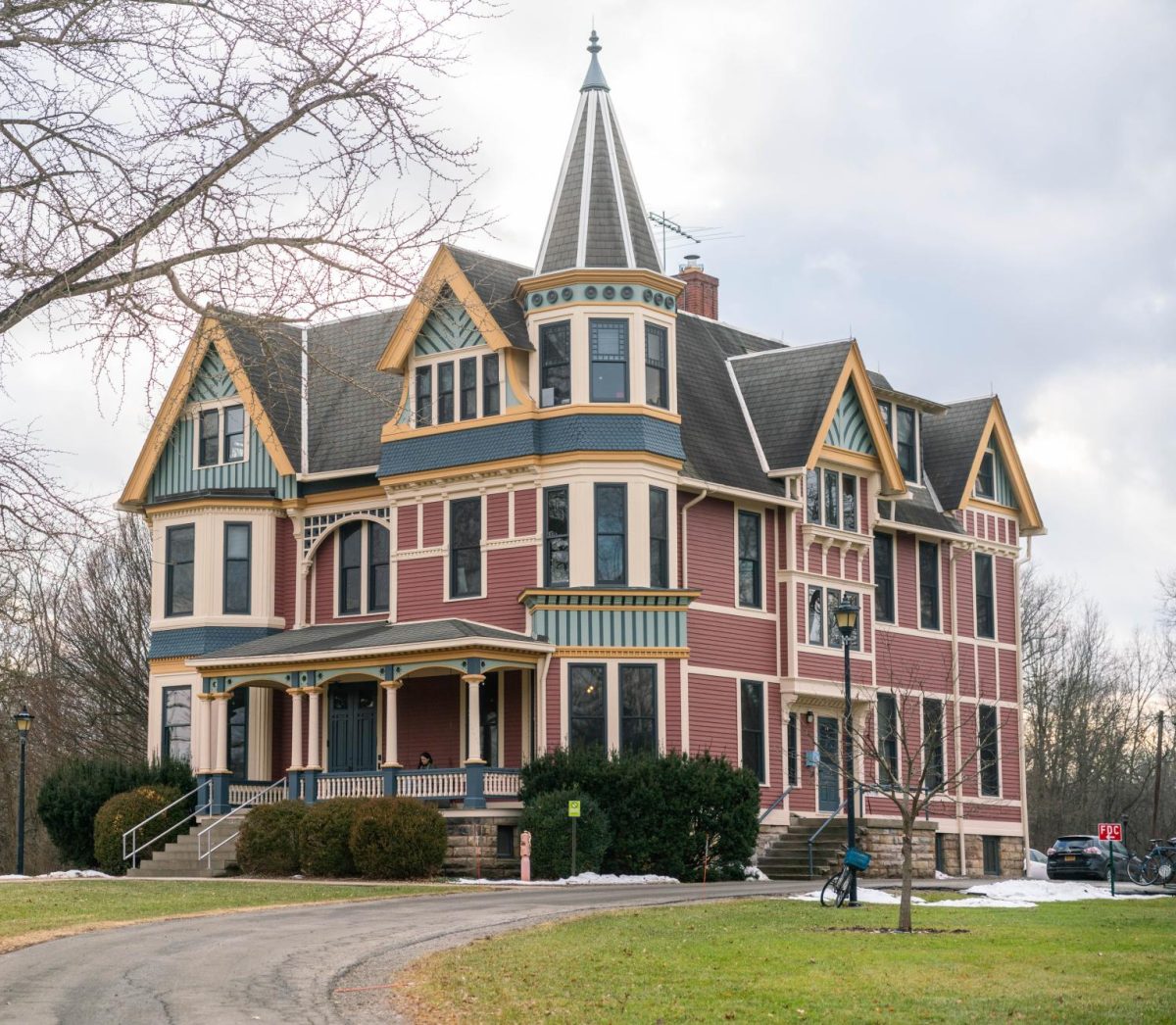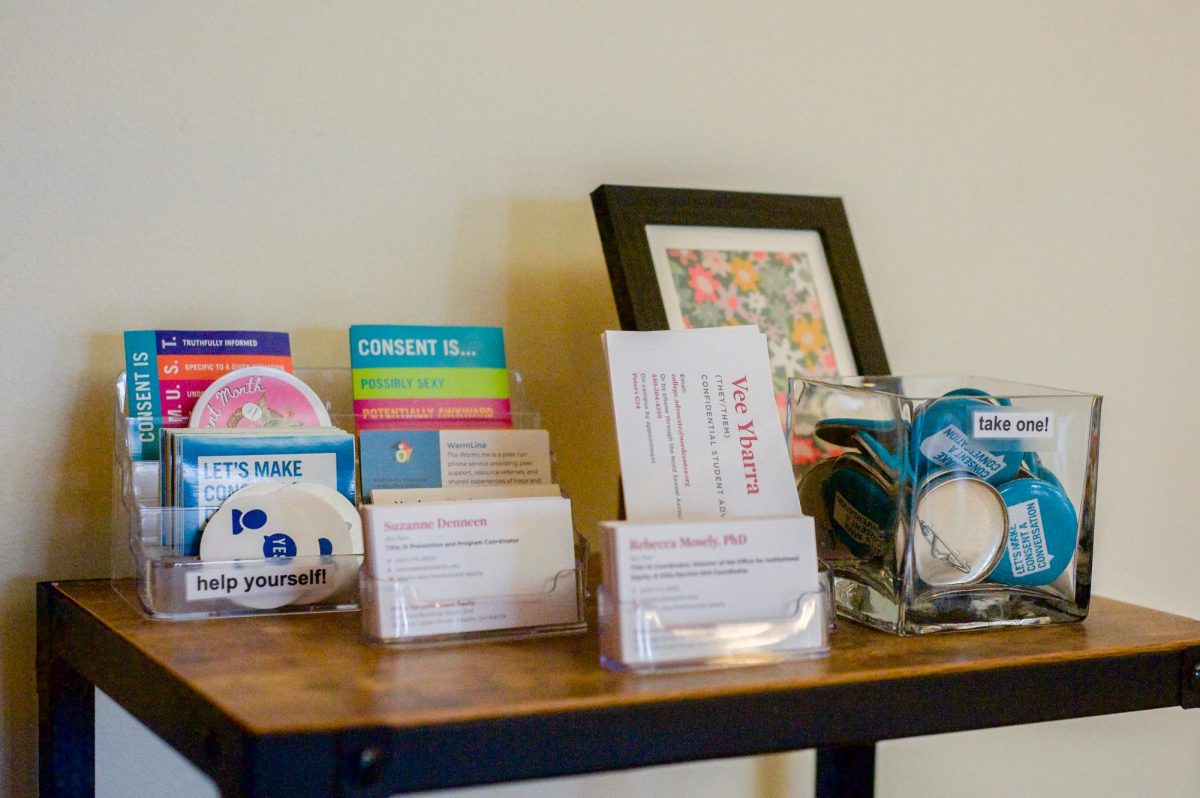Ecolympics Encourages Energy Conservation, Competition
April 6, 2012
Along with group showers, ice cream socials and dorm rivalries, the Ecolympics have returned. The competition began Tuesday and will run for a total of three weeks, during which dorms will battle in three separate categories that include electricity reduction, water reduction and attendance at Ecolympics events.
“The goals are to engage, educate, motivate and empower students to take control of their resource use in dorms and to think more actively about the ways in which the personal and collective choices that they make affect the environment,” said John Petersen, associate professor of Environmental Studies and Biology.
Dorms that finish first in each of the categories will be rewarded with a commemorative plaque and a Cowhaus Creamery ice cream party. According to organizers, these prizes and the general desire to conserve resources make the Ecolympics a popular campus event.
“Historically, it gets competitive,” said College senior and Environmental Studies major Danny Daneri, who oversees all marketing and advertising for the program. “It’s been a big thing.”
Daneri says that dorms have taken drastic measures in the past to get a leg up on the competition. Harkness Hall residents allegedly unplug their co-op kitchens while some Fairchild House dwellers shower in other buildings. Other participants have taken group showers to preserve water and use appliances in other dorms in order to keep their consumption figures low.
“We don’t endorse sabotage, but group showering is encouraged,” said Daneri.
To be competitive in the energy consumption category, Daneri suggests that participants take advantage of natural light, unplug unused appliances, turn off lights, and work in communal spaces in the library.
“You want to get out of your dorm, [that] is pretty much the point,” said Daneri.
Organizers say the best way to curb water consumption is through taking quick showers, turning off the faucet while you brush your teeth and making sure the faucet doesn’t drip.
The third and final category is decided by which dorm accumulates the most hole-punches on their Ecolympics cards. Attendees receive one punch for each attended event. Participants can choose from a variety of different activities including a craft night, compost summit and field day.
The competition doesn’t stop there. Throughout the three weeks, Oberlin as a whole will participate in the Campus Conservation Nationals, a program that encompasses 250,000 students representing 150 different schools. The program, though technically a competition, emphasizes a national collaborative effort and sets a goal for a collective reduction of one gigawatt-hour for the year. According to Daneri, the mark was met three weeks ago.
Monitoring each campus’s progress is Lucid Design Group, an Oberlin alumni-founded software company. Lucid’s state of the art technology allows students to monitor their water and electricity in real time, simply by logging onto Oberlin.edu/DormEnergy.
While the real time monitoring of resources is expected to reduce electricity and water use on campus for the next three weeks, organizers are also looking at the big picture. Events like these, they say, are important stepping-stones towards reaching the ultimate goal of carbon neutrality by 2025.
“It is extremely important that we use less resources in order to reach carbon neutrality,” said College senior Annika Sullivan, Biochemistry major. “There will be increasing opportunity during the competition and during the next couple of years for students, faculty and staff to comment and explore their carbon footprint and how that impacts the collective carbon footprint of the college.”
As the 2025 deadline inches closer and resources become increasingly valuable, event organizers insist changes need to be made to protect the environment.
“Climate change and water scarcity pose a real threat to humanity and the Earth’s ecology as a whole,” said Daneri. “To address these issues we need to engage in fundamental lifestyle changes that minimize our effect on the environment.”




